Teaching English abroad is an exciting path for young travelers and aspiring educators. But one big question to consider is: Do you want to teach children or adults?
In this comprehensive guide, we’ll compare teaching English abroad to children versus adults, highlight what to expect in each setting, and discuss how to prepare. Whether you dream of energizing a class of kindergartners in Thailand or leading business English workshops in Costa Rica, read on to learn which path is right for you.
Teaching English to Children Abroad
Teaching children abroad is a high-energy, interactive experience.

Here’s what to expect:
- Engaging Teaching Style: Children thrive with games, songs, movement, and techniques like Total Physical Response (TPR). Using props, flashcards, and puppets keeps lessons fun and focused.
- Classroom Management: Kids need structure and frequent reminders of rules. Patience and strong management skills are essential to keep the classroom running smoothly.
- Fearless Learners: Unlike adults, children are not afraid to make mistakes. They often participate enthusiastically and learn quickly through trial and error.
- Motivation Tactics: Most kids attend English class due to school or parental expectations. To keep them engaged, teachers use external motivators like praise, games, and rewards.
- Role of the Teacher: Teachers often act as entertainers and motivators, creating a vibrant and exciting learning environment.
Where Can You Teach Children?
Asia is the hottest region for teaching children and teens, with huge demand in countries like South Korea, Thailand, China, and Japan.

Programs in Japan place foreign teachers in public schools across the country, and South Korea’s public schools and private academies (hagwons) hire thousands of English teachers each year.
In Southeast Asia, countries like Thailand and Vietnam also have many opportunities to teach in schools or language centers for kids.
Europe has options, too, often through government-sponsored programs. For example, Spain and France recruit natural English speakers to assist in K-12 classrooms.
Teaching English to Adults Abroad
Teaching adults requires a different approach tailored to their needs and learning styles.
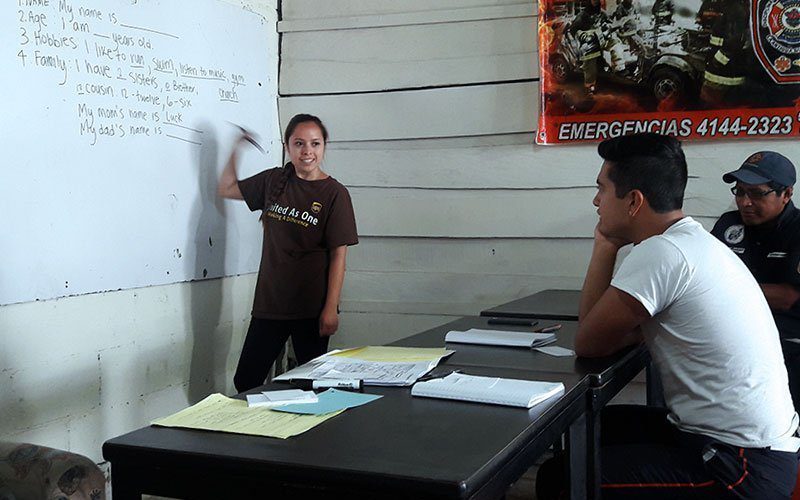
Here’s what to expect:
- Advanced, Relevant Content: Lessons focus on complex language, clear grammar explanations, and real-life communication—especially for work, travel, or study—challenging learners and fueling ongoing professional growth.
- Self-Directed Learning: Adults are motivated and self-regulating, minimizing classroom management and maximizing time for productive learning.
- Supportive Atmosphere: Creating a safe space and encouraging participation helps overcome adults’ fear of mistakes and boosts confidence.
- Goal-Driven Focus: With clear objectives (career advancement, relocation, etc.), lessons are purposeful and outcome-oriented, leading to tangible progress.
- Dynamic Discussions: Diverse backgrounds enrich the classroom through engaging debates, presentations, and those rewarding “aha” moments.
Where Can You Teach Adults?
Latin America is one great option. Popular countries in this region for teaching adults include Costa Rica, Mexico, Argentina, and Brazil, where private language schools cater to adult students in the evenings. These learners might be business professionals or university students looking to improve their English for work opportunities.
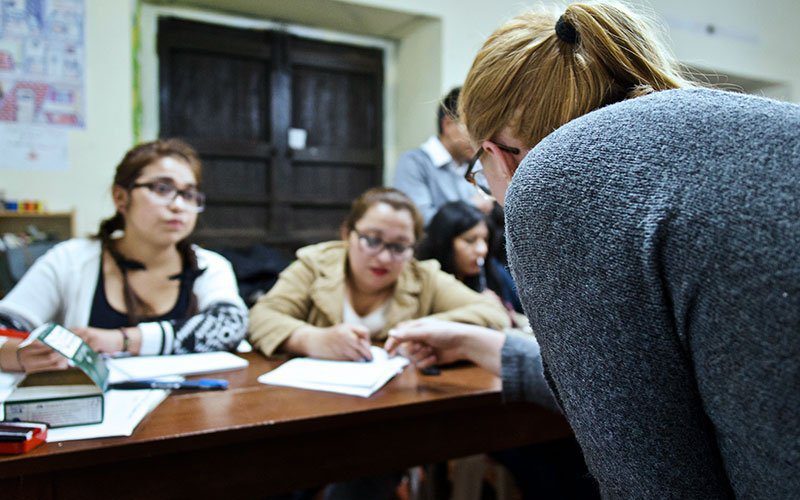
The Middle East is another region where teaching adults is common. Countries like the UAE, Saudi Arabia, and Oman often hire English teachers for universities, colleges, and corporate training centers. These positions typically come with high salaries and benefits, so they may seek teachers with experience or advanced degrees.
You can also find a mix of adult teaching jobs in parts of Europe and Asia. For example, large cities in China or Japan have private language centers that offer night classes for adult learners (though teaching kids is still more prevalent in East Asia).
From business English classes in Spain to hospitality English courses in Thailand, you can find a niche that fits your interests.
Getting TEFL Certified for Teaching Abroad
A TEFL (Teaching English as a Foreign Language) certification is typically required for most paid teaching jobs abroad. It equips you with essential teaching skills and shows schools that you’re qualified.

Here are a few top options to consider (which offer high-quality training and support):
- Maximo Nivel: Maximo Nivel is an education organization in Latin America known for its award-winning TEFL certification program. Their 4-week, 150-hour onsite TEFL course in Costa Rica, Guatemala, or Peru is internationally accredited and very hands-on. Trainees get real teaching practice with local ESL learners as part of the course. Maximo Nivel also offers lifetime job placement support for TEFL graduates, which means they’ll help connect you with teaching opportunities in Latin America and worldwide.
- International TEFL Academy (ITA): A highly respected TEFL provider with worldwide reach. ITA offers accredited online and in-person courses (120 hours and up) and has an alumni network of over 50,000 graduates around the globe.
- IVHQ Online TEFL: International Volunteer HQ (IVHQ) offers a convenient 100-hour online TEFL course for prospective volunteer teachers at a discounted rate. It’s an affordable way to get certified from home.
Tip: Completing this certification before you volunteer abroad will help you feel more confident walking into the classroom.
Volunteer Teaching Abroad: Gain Experience and Make an Impact
Volunteer teaching abroad is a great way to start your journey and give back while traveling.

It helps you build confidence, gain experience, and strengthen your resume before applying for paid roles.
Below are eight highly recommended organizations that offer reputable, impactful volunteer teaching opportunities around the world:















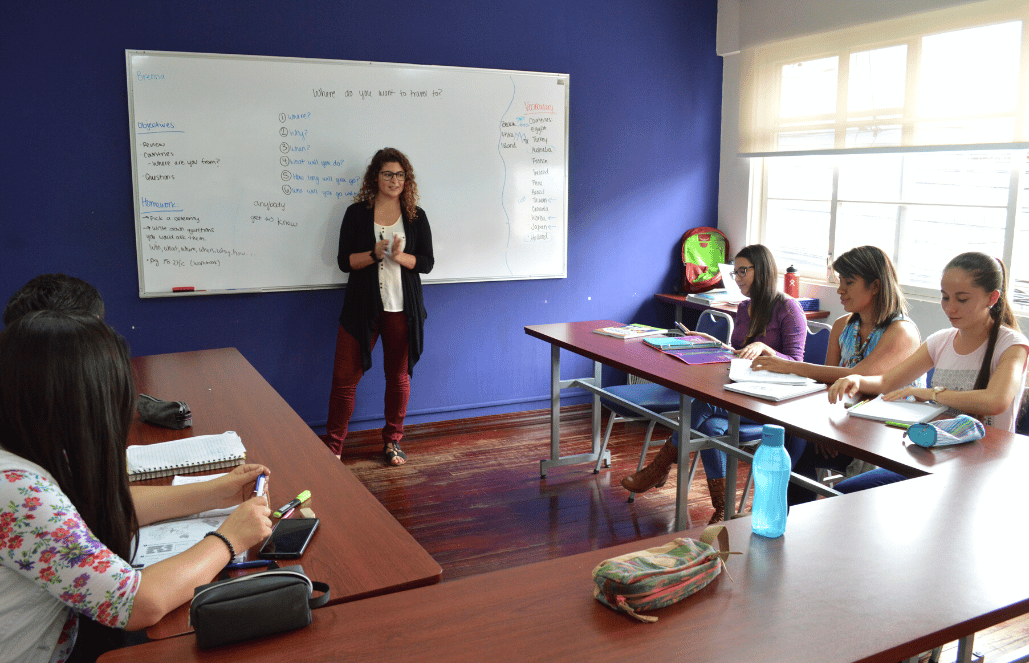

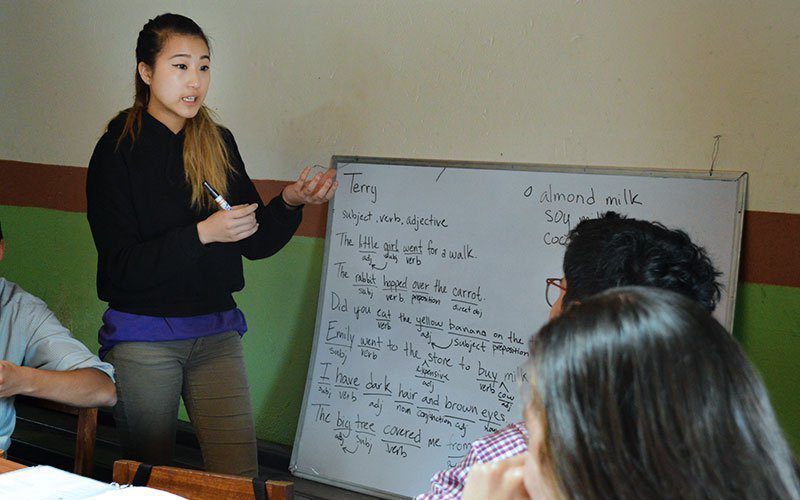






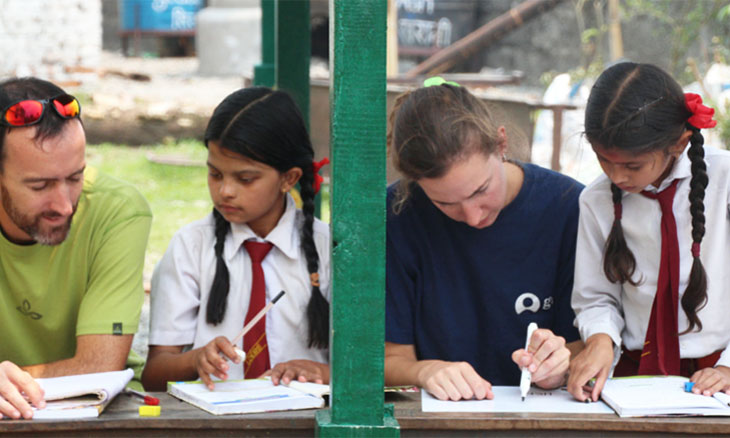







Munira Maricar · Travel Writer
With an international living background spanning Singapore, Qatar, Japan, and Mexico, Munira enjoys sharing insights on immersive travel while emphasizing the vital role of cultural respect and ethical engagement. Her extensive experience offers a unique perspective that inspires others to explore the world through service, ensuring that every journey respects and contributes positively to local traditions and communities.